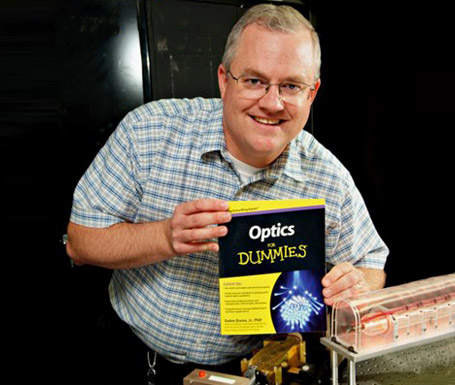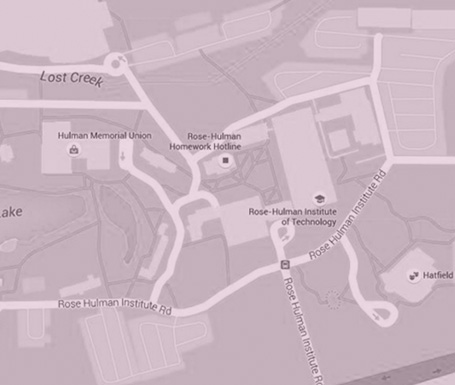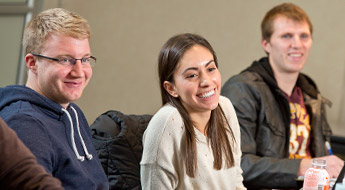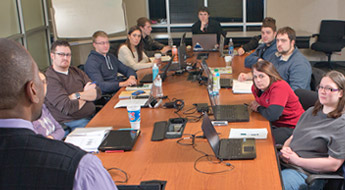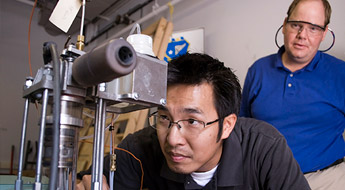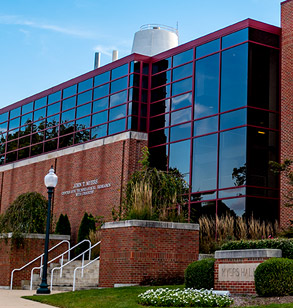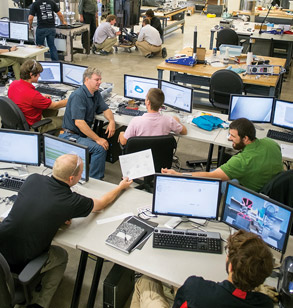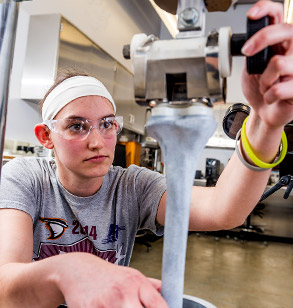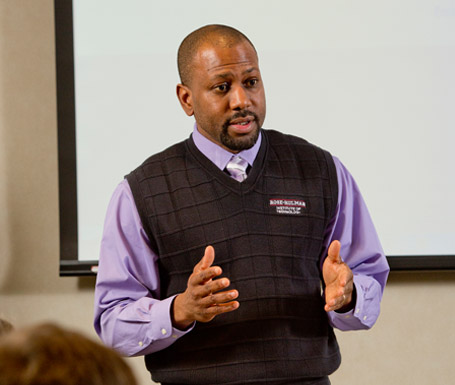The objective of the Master of Science in Optical Engineering program is to prepare graduates for early career advancement in the field of Physics or Optical Engineering by building upon their undergraduate training with advanced coursework and concentrated study of problems and topics relevant to the field.
Master of Science in Optical Engineering Student Learning Outcomes
- Students will demonstrate technical expertise in one or more specialized subjects of optical engineering.
- Students will demonstrate the ability to utilize advanced mathematical, computational, and/or experimental skills to solve complex problems in the area of optical engineering.
- Students will demonstrate the ability to effectively communicate technical ideas, design concepts, or research results.
Master of Science in Optical Engineering requirements
-
36 credit hours of course-work (24 credit hours of required courses and 12 credit hours of elective courses)
-
12 credit hours of thesis-work
- Students are required to submit their plan of study for approval by their thesis advisor and their advisory committee.
- Students are required to successfully defend their M.S. thesis
Required Courses (unless already taken*)
OE 520 Principles of Optics**OE 570 Special Topics in Optics
OE 580 Optical Systems Design
OE 592 Fourier Optics & Applications
OE 585 Electro Optics and Applications
OE 595 Optical Metrology
OE 594 Integrated Optics
* Required credits must be replaced by 400- or 500-level OE/PH/EP courses.
** Unless have already taken PH292, OE280 and OE295
Elective CoursesStudents are required to choose elective courses listed in the graduate studies web page

